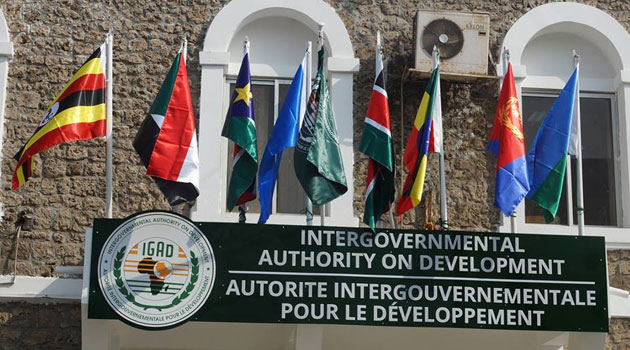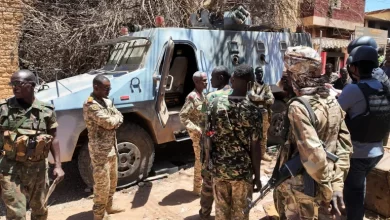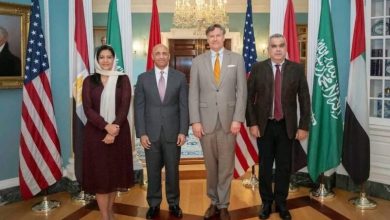Sudan Events: (IGAD) and the Sudan file… raising doubts

Report – Sudan Events
Before the dust spurred by the delay of the meeting decided by IGAD between Sudanese Army Chief Lieutenant General Abdul Fatah Burhan and the leader of the Paramilitary Rapid Support Force (RSF), Mohamed Hamdan Dagalo (Hemedti), is settled, Dagalo appeared in a number of IGAD countries that were supposed to facilitate the meeting and resolve the Sudanese crisis, including Djibouti, the head of the current session and the seat of the Organization itself.
The appearance of the rebel leader with the leaders of the IGAD countries as they welcomed him as a head of state raised further doubts about the intentions of these countries towards Sudan.
Observers saw that Hemedti tried during the tour to benefit from his special relationships and win a number of IGAD leaders to his side and strengthen his negotiating position.
The meeting that was expected to bring together Al-Burhan and Hemedti was scheduled for late last December, but IGAD announced its postponement to this January “for technical reasons,” which left everybody astonished.
Regarding the crisis, some believe that there is a contradiction and different priorities for the IGAD countries regarding the Sudan crisis, perhaps driven by interests or developments in the region, which makes progress towards resolving the crisis, remarkably slow.
Meanwhile, the head of the Political Bureau of the Democratic Alliance for Social Justice, Mubarak Ardoul, on Thursday spoke about Sudan’s decline as a priority for IGAD and its inadvertent or deliberate forgetfulness of the crisis.
He said in a post on “X” platform that the peace dossier in Sudan has slipped to the bottom of priorities for the IGAD due to surge of crisis between Ethiopia and Somalia and the possibility of luring and polarizing some regional parties.
He pointed out that none of the recommendations of the recent presidential summit were implemented, as a special envoy to Sudan was not appointed, and no meeting was planned to be held between the Sudanese army commander (head of the Sovereignty Council), the Rapid Support Commander, or anyone else.
Ardoul believed that forgetting the crisis in Sudan “inadvertently or intentionally” has serious repercussions on the reality of the region, especially on neighboring countries. Revitalizing and reviving the peace process by strengthening the IGAD platform in neighboring countries is a fundamental issue that must be worked on. Ardoul considered the entry of countries such as Egypt, Chad and Eritrea as an addition to the IGAD countries, would bring the matter back to the spotlight.
The Sudanese inability to deal with the IGAD efforts came after the stumble that befell the Jeddah platform, but the outcomes of the IGAD summit that was held last December raised controversy and doubts, as the Sudanese Foreign Ministry considered the summit statement not expressive of what it came out with and is not considered a legal document, and demanded that paragraphs be deleted and corrected. Some of them, especially Al-Burhan’s agreement to meet with Hemedti, because he stipulated a permanent ceasefire, the withdrawal of forces from Khartoum, and the inequality between the two forces.
Some believe that IGAD is not neutral and unable to resolve the crisis. Former Sudanese Foreign Minister Ambassador Ibrahim Taha Ayoub said in a statement on Wednesday that IGAD has not and will not achieve progress in stopping the war in Sudan.
He added in an interview with Radio Dabanga, that IGAD is not the party that is supposed to handle this dossier, because the member states forming the IGAD, have difference from each other and that its efforts to stop the war and achieve peace will not bring any results, and he called for a return to the Jeddah platform and focus on it.
He noted that IGAD has neither powers nor mechanisms to hold accountable those who refuse to abide by any agreement that comes from their side, while Saudi Arabia, the United States, and the European Union have some power and an interest in the stability of Sudan, unlike the IGAD countries, which do not all want the stability of Sudan – according to his description.



